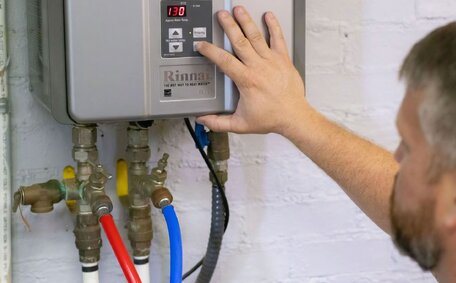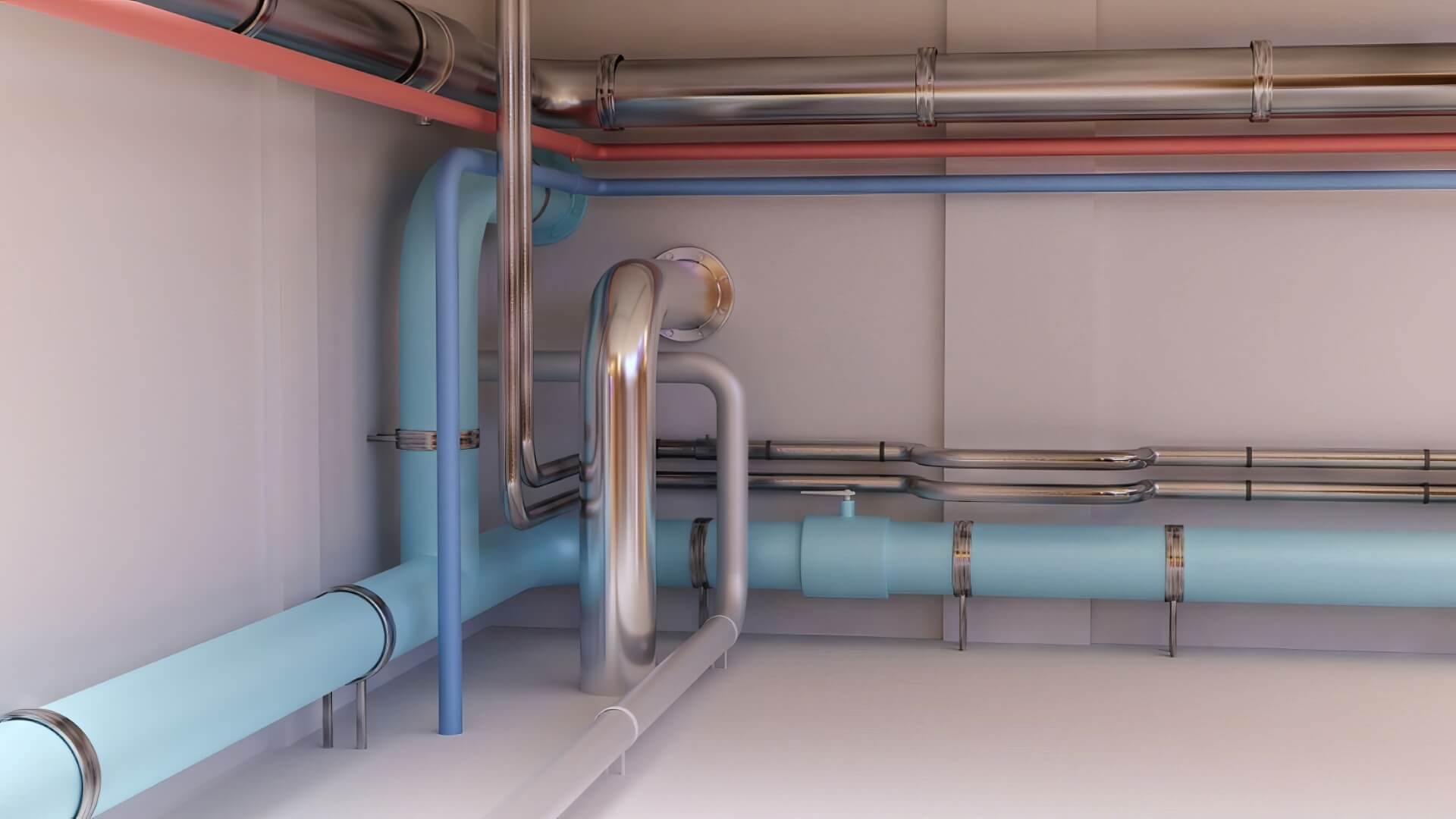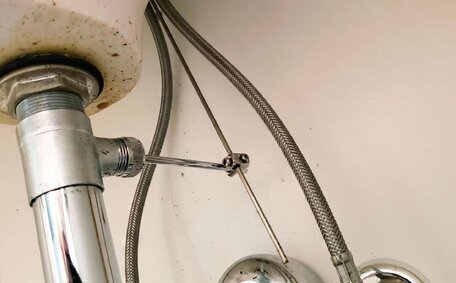Introduction to Pipe Relining
Damaged and deteriorating pipes can be a nuisance, causing leaks, blockages, and even flooding. Traditionally the only solution was full pipe replacement - a messy, expensive, and disruptive process. Fortunately modern plumbing techniques like pipe relining provide a faster, more affordable pipe repair option without the hassle.
Pipe relining involves installing a protective epoxy barrier inside your damaged pipes to seal cracks and holes. The old pipe remains in place, avoiding the need to dig trenches or break concrete. The process is minimally invasive, with almost no disruption to your home or business.
As leading plumbers servicing Glenwood and the greater Sydney area, Glenwood Plumbing specialises in pipe relining and other trenchless pipe repair solutions. We know first-hand the benefits relining provides over traditional pipe replacement.
In this guide we’ll cover everything you need to know about getting your pipes relined quickly and efficiently. Our aim is to solve the problems damaged pipes cause as swiftly and seamlessly as possible.
You’ll learn about the relining process, its speed and durability compared to replacement, environmental impacts, professional assessments to determine if it’s suitable for your situation, and more.
When to Consider Pipe Relining
There are a few key signs that your pipes may be deteriorated and in need of repair where relining is a good solution. These include:
- Frequent clogs or blockages - If certain drains in your home keep getting clogged, it often indicates cracks, holes or joints in your pipes that allow waste to build up and accumulate.
- Leaking pipes - Water leaks usually signal pipe corrosion and damage that requires swift repair to prevent water loss, mould risks and potential flooding.
- Contaminated water - Rust, debris or strange smells in your water can be caused by internal wear and tear of pipes.
- Knowledge of existing pipe issues - Old galvanised steel, clay or concrete pipes naturally weaken with age and use. CCTV inspections also reveal developing faults like intruding roots that need addressing.
- Preparing for renovations - It’s smart to get pipes relined prior to renovating bathrooms or kitchens to prevent having to redo the work later if hidden pipe problems emerge.
The technicians from Glenwood Plumbing use high-tech CCTV pipe inspections to properly assess the condition of your pipes and determine if relining or full replacement is needed to remedy the issues your plumbing system faces.
How Pipe Relining Works
The pipe relining process involves installing a protective barrier liner inside your existing pipes to repair damage and prevent further wear without having to replace the entire plumbing system. It’s considered a green solution since it reuses the old pipes rather than discarding them.
First, our technicians will conduct CCTV inspections to evaluate the scope of damage and prepare custom liners. We use advanced epoxy resins that cure to form a smooth, jointless and corrosion-resistant interior pipe surface that seals cracks and holes.
The flexible liner sleeves are then saturated with eco-friendly resin and pulled through the full length of the pipe. Precision monitoring ensures the liner achieves complete adhesion. Finally, UV light or steam cures and hardens the resin into a durable internal sheath.
Pipe relining can be applied to all common plumbing pipe types - PVC, copper, concrete, clay and steel. With minimal digging required, it’s far less disruptive than pipe replacement. The liner also has a 50+ year design life, so it’s built to last with low maintenance needs.
Contact Glenwood Plumbing to learn more about rapidly reinforcing your plumbing with pipe relining services customised to your home or business.
The Pipe Relining Process Step-by-Step
Now that you understand the basics of pipe relining and when it’s an appropriate solution, let’s walk through the full process step-by-step:
- Inspection - We first conduct a CCTV pipe inspection, using a special camera to examine the interior condition of your pipes and locate any damage, blockages, intruding roots or other faults.
- Cleaning & Prep - Next we clean the pipes to remove any debris or deposits inside using high-pressure water jetting. We may also need to use mechanical cutters to remove major blockages or protruding sections.
- Liner Installation - A resin-saturated liner sleeve is then pulled into the pipe to coat the interior surface entirely. Our technicians monitor the installation closely to ensure proper positioning.
- Curing & Finishing - Finally, we apply steam or UV light to activate and harden the resin liner completely. The new smooth, jointless and corrosion-proof surface is now set firmly in place to reinforce your pipes.
Using robotic cutters, precision digital monitoring and advanced resin technology allows our team to provide rapid and effective pipe relining services to homes and businesses across Glenwood and Sydney. With specialist expertise, we simplify the process while providing long-lasting results.
Contact our professionals at Glenwood Plumbing today on 1300 349 338 for advice and custom relining solutions tailored to get your plumbing back on track.
The Pros and Cons of Pipe Relining
When weighing up whether to reline or fully replace your pipes, consider these main pros and cons:
Pros
- Minimal disruption - No need to dig trenches or break into walls since your existing pipes stay in place.
- Speed - The relining process takes just 1-2 days compared with 1-2 weeks for full replacement.
- Affordability - At around 60% cheaper than replacement, pipe relining is a budget-friendly solution.
- Longevity - Advanced epoxy resins provide 50+ years of life for peace of mind.
- Added capacity - Smooth bore lining removes blockages and corrosion to improve water flow.
Cons
- Access limitations - Extreme angles or pipe collapses may prevent liner installation.
- Peak corrosion - Where over 75% of the pipe wall is corroded, replacement is better.
- Future restrictions - Lining reduces the pipe diameter slightly, limiting upsizing options later.
Glenwood Plumbing’s licenced technicians can advise whether pipe relining or replacement is best after conducting in-depth CCTV pipe assessments. Most instances of damage can be well repaired with minimally invasive and resilient internal liners. Contact our team today to discover the fastest solution for your situation.
Pipe Relining vs. Pipe Replacement
When faced with damaged pipes, many homeowners wonder whether relining or full replacement is the most practical and cost-effective solution. Each has distinct pros, cons and costs to weigh up carefully.
In many cases, pipe relining provides similar structural renewal and longevity as replacement for 60% less. The polymer resin liners have a 50+ year design lifespan which matches or even exceeds that of new copper or PVC pipe alternatives.
However, situations of extreme corrosion and access limitations may mean replacement is the only viable option. Where over 75% of a pipe’s original wall depth is eroded, the remaining metal can no longer provide adequate structural support once a liner is inserted.
Likewise, collapsed sections or pipes with multiple difficult bends may prevent liner installation. Here, replacement allows correctly resizing and re-routing pipes to prevent future issues.
Indicative costs for common residential scenarios are:
- Kitchen sink relining - $550 to $850
- Kitchen sink replacement - $1,200 to $3,000
- Bathroom relining - $750 to $950
- Bathroom replacement - $3,000 to $7,000
As you can see, opting for relining provides dramatic savings in most situations. Short 1 to 2 day completion times also minimise disruption to your home compared to 1 to 2 week replacements.
Glenwood Plumbing offers free on-site assessments to gauge whether your pipes are suitable candidates for swift and effective relining or if complete replacement is recommended. Our pipe repair solutions balance both immediate costs and long-term gains to provide the smartest ways of protecting your plumbing.
Contact our team on 1300 349 338 to learn more about whether pipe relining or replacement is your fastest and most economic path forward.
Questions to Ask Your Pipe Relining Company
When choosing a professional pipe relining company, ask these key questions to ensure you get quality service:
- Are you licenced and insured?
- What relining methods and materials do you use?
- Do you offer any warranties or guarantees?
- Will the process require digging or breaking into walls?
- How long will the project take from start to finish?
- How do you limit disruption to my home or business?
- Do you use eco-friendly and non-toxic processes and materials?
- Can I see some examples of your previous relining work?
- What do you do to ensure a safe working environment?
At Glenwood Plumbing, we:
- Have all required plumbing licences and insurance
- Use high-quality epoxy resin liners for durability
- Provide a 50 year warranty on pipe relining materials and workmanship
- Offer trenchless solutions that require no digging or demolition
- Take just 1-2 days from inspection to project completion
- Schedule work conveniently with minimal impact
- Use green and non-hazardous installation processes
- Show our proven relining results from past projects
- Fully comply with work safety laws and practises
For more advice on choosing the best plumbing solutions for your needs, contact our team at Glenwood Plumbing on 1300 349 338.
How to Ensure a Successful Pipe Relining Project
A quality pipe relining job should serve you well for decades to come. But it’s still important to do periodic checks and proper maintenance to get the maximum lifespan and performance.
After the project’s completion, thoroughly inspect all previous problem areas to ensure leaks, blockages and other issues are now fully resolved. Check for any potential resin clogs as well. We fix any outstanding problems immediately under our workmanship guarantee.
Going forward, monitor your relined pipes, especially kitchen and bathroom drains, for any new leaks or blockages which may indicate displacement of the liner. Likely causes are roots or soils settling so notify us promptly if you observe any changes.
Practise good drainage care by avoiding pouring fats or harsh chemicals down drains and using sink strainers to catch food waste. However, if clogs emerge, don’t plunge aggressively or use drain cleaners which risk damaging the liner - call us for professional and safe clearing.
While relined pipes are highly durable, unforeseen structural issues could potentially impact them. If any leaks, blockages or contamination persist beyond isolated incidents, get in touch to evaluate if repairs or replacements are warranted.
With proper care and maintenance, your relined plumbing can serve your household reliably for 50+ years. Our team at Glenwood Plumbing is always ready to assist with any questions or concerns about your pipes’ performance post-relining as well.






